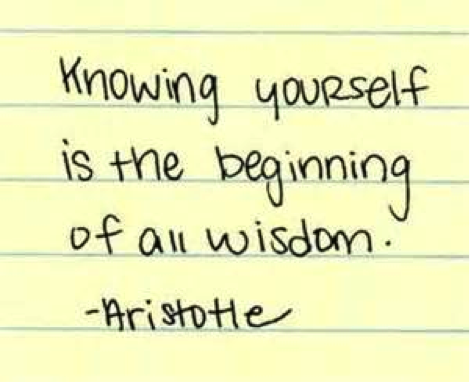For anyone who thinks he’s in
control or who likes to be in control, I’ve got bad news for you. Scientists believe
to have shown that the brain runs largely on autopilot. Whether you like to
hear this or not, if this is true, your brain acts first and asks questions later (if at all),
often explaining behavior after the fact. I don’t like this, but I recognize it.
I see it in the workplace and I see it in my own life. I don’t think this
mechanism serves us well. It encourages the deadly sin of avoiding
accountability, assigning blame to someone or something, and deceiving yourself into thinking that you are right. It keeps biases, misconceptions and
self-deception untouched. Not a good thing. Whether you and I believe the
notion of a brain on autopilot or not, I still believe in the necessity and the
power of critical thinking. Here’s why.

Think of
your average workplace conversation or meeting. Have you ever witnessed people
leave even more convinced of their own ideas than before the meeting? Have you
ever been in a conversation that lasted and lasted, with few questions asked
and those that were asked were the
wrong kind of questions. Have you ever seen two people talk, thinking that they
understood each other, thinking that they agreed on one and the same thing only
to see them leave with two different interpretations of the main problem and the solution?
These
situations are no exaggerations nor are they exceptions. They happen, and they
are detrimental to quality thinking processes, quality discussions, and quality
decision-making. They make the workplace more tense, inefficient, and
ineffective, because they lack critical thinking. Not a good thing.
In it’s
course Critical Thinking, the
University of Hong Kong describes critical thinking as the
ability to think clearly and rationally. This requires reflective and
independent thinking. Reflective thinking happens when you scrutinize your own
(or someone else’s) assumptions, thought patterns, and behaviors, as well as your
fears, needs, distortions and biases. Independent thinking refers to thinking that
is minimally affected by peer group pressure, social media, common belief,
parental influence, or any other force from outside.
Not an easy task, even though most people who read
this post may think that they’re just that: reflective, independent thinkers.
Well, you’re likely not, or at least less than you think you are.
Particularly
two aspects of critical thinking as defined at the University of Hong Kong
attract my attention because I think most of us fail to do so:
1. Detect inconsistencies and common mistakes in our
reasoning.
2. Reflect on the justification of our beliefs and
values.
Critical
thinking is mostly about evaluating your own thoughts, examining possible flaws,
and detecting biases in your own approach. When was the last time you really
practiced this? And how differently would your conflict with another manager, or the tension during a performance review conversation, or the decision making
during that team meeting have transpired? So consider the following questions:
How curious are you really?
How often
do you consciously refute your cherished beliefs?
When
was the last time you eagerly widened your perspective in a disagreement?
How easily do you doubt yourself and suspend your judgment about
that one manager that everybody is gossiping about?
I’m guessing not so often and not so much, and that makes you human. It’s more likely that you’ve jumped to premature conclusions, that
you’ve accepted your own assumptions blindly, and that you are only remotely
(if at all) familiar with the practice of carefully and critically examining your
preconceived notions.
So what
to do now? Examples of questions that help you think critically in different
stages of your thought process:
- Do I have enough perspectives?
- Have I
consulted a variety of sources?
- Are my assumptions valid?
If so, why?
- If not,
why not?
What are they even based on?
- What am I not willing to see/look at?
- Which preconceived notions should I re-examine?
- Who or what can help me stress-test my assumptions?
- Do I need to gather or investigate more facts
and data?
- What do I need to do to remain alert
and open-minded while I implement my ideas?
The above questions are only one necessary step to become a mindful, reflective, and critical thinker. Someone who is 'comfortable' to hunt for inconsistencies and mistakes in their own reasoning and to reflect on the justification of long-held beliefs.
Continually questioning
how you are searching, choosing, interpreting, and judging information is essential
to critical thinking and can help minimize group think and intolerance. It
makes you a smarter thinker, employee, leader, and team member. It makes the
world and the workplace a much better place!




